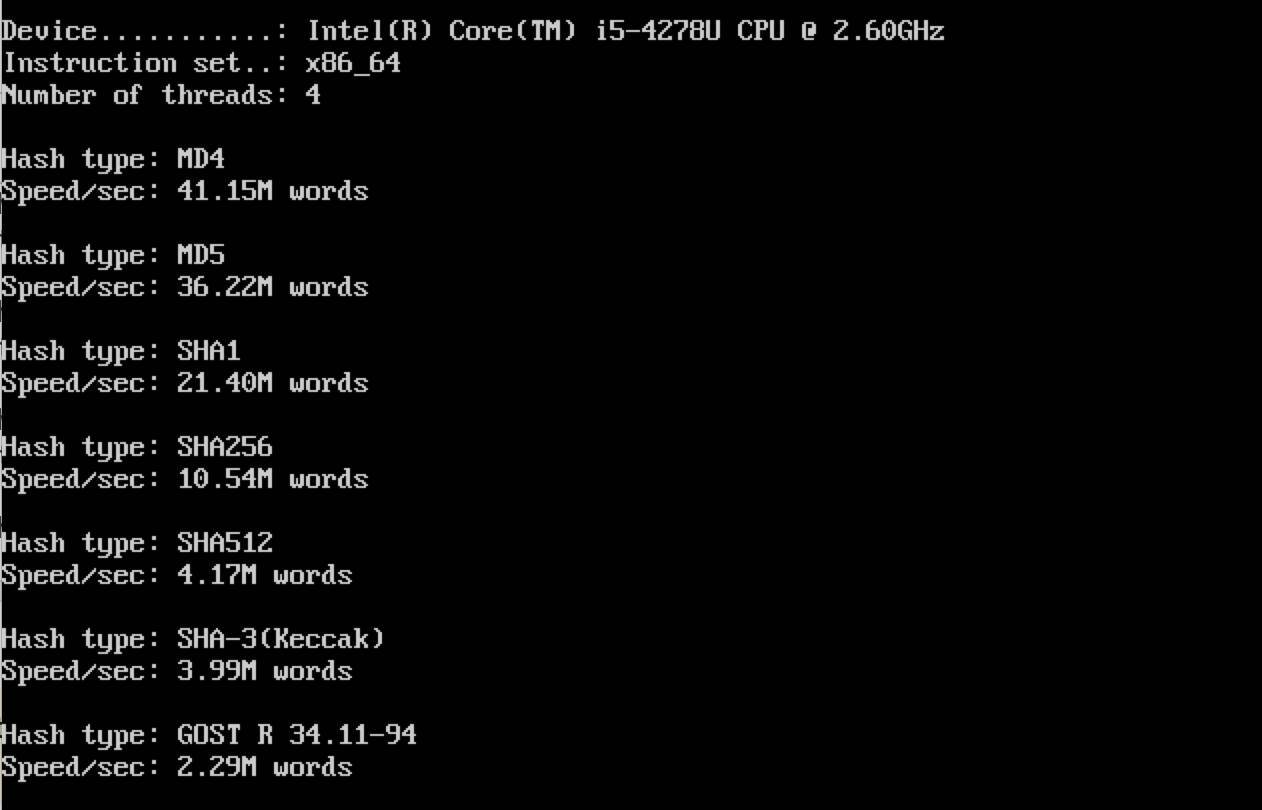Is it correct to say that the attempts of brute force per second will
be twice faster if I have a quad core processor instead of a duo core?
Hashcat is multi-threaded so it will be faster with a quad-core but I don't think it will be twice as fast exactly.
Which role does the RAM play in increasing the attempts per second?
Hashcat stores dictionaries in memory, so the more RAM you have the less swap needs to happen.
Ok so I went ahead and ran a little experiment, here are the results (I did not let the full benchmark run, so only the first few algorithms are tested). Here is the table for MD5:
| CPUs | RAM | Words per Second |
|:----:|:----:|:----------------:|
| 1 | 512 | 13.59M |
| 1 | 1024 | 12.47M |
| 2 | 512 | 25.01M |
| 2 | 1024 | 26.54M |
| 4 | 1024 | 36.22M |
Hashcat benchmark with 1 cpu and 512 MB RAM
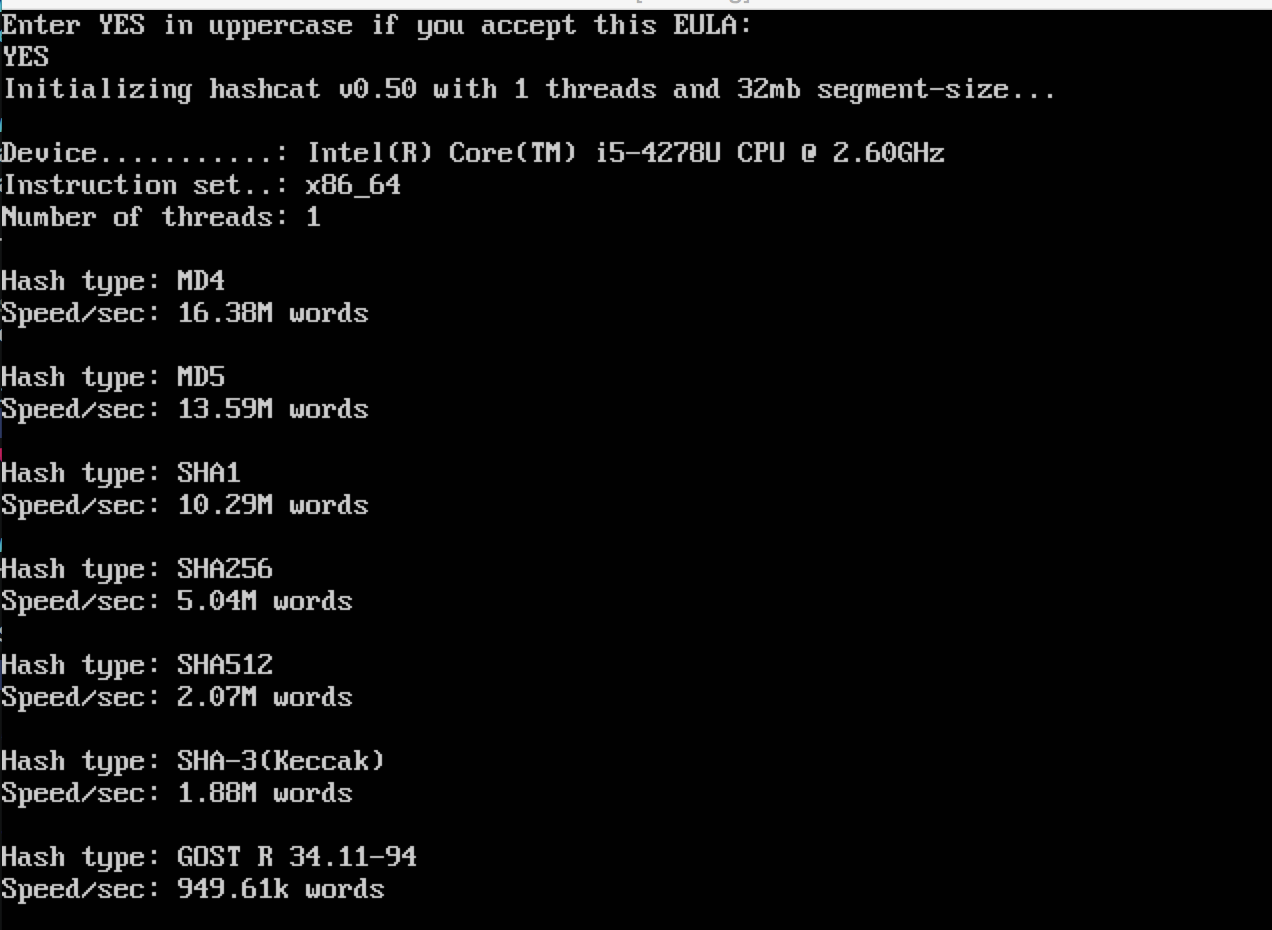
Hashcat benchmark with 1 cpu and 1024 MB RAM
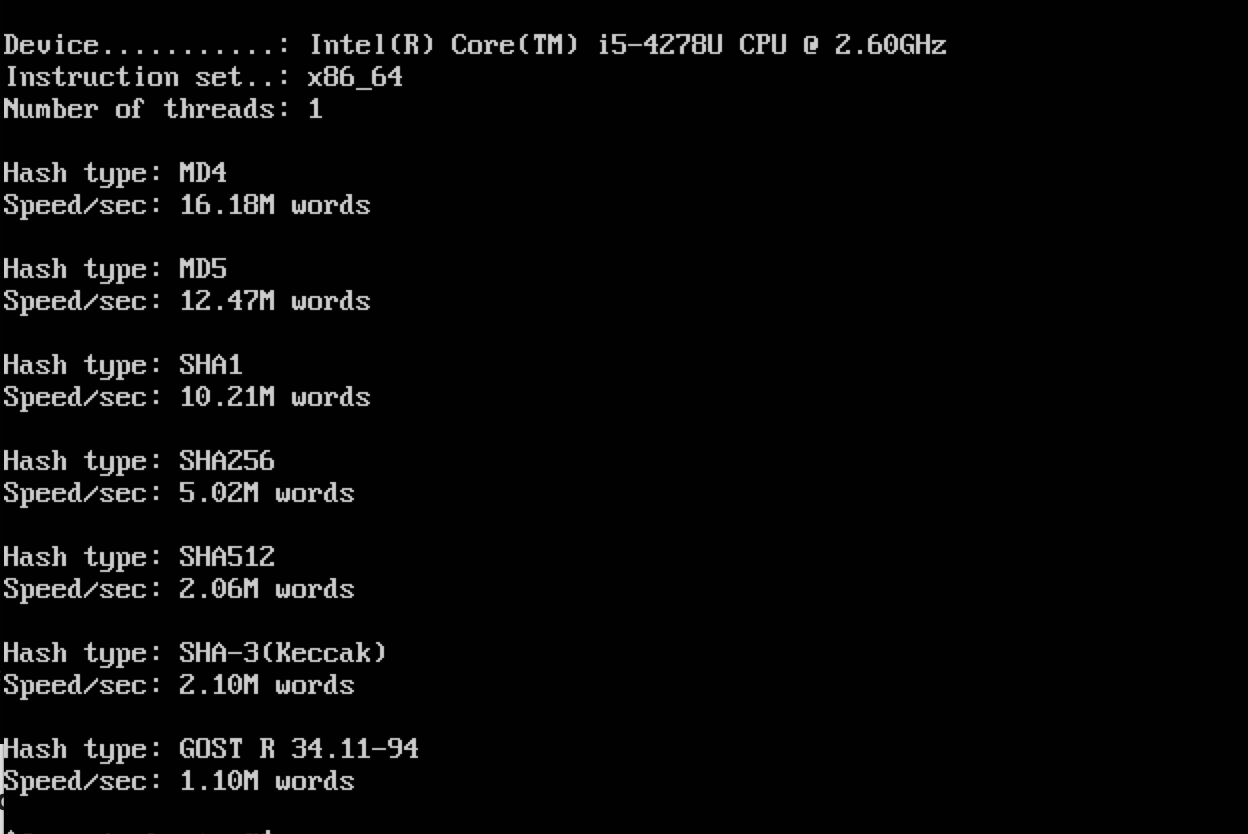
Hashcat benchmark with 2 cpus and 512 MB RAM
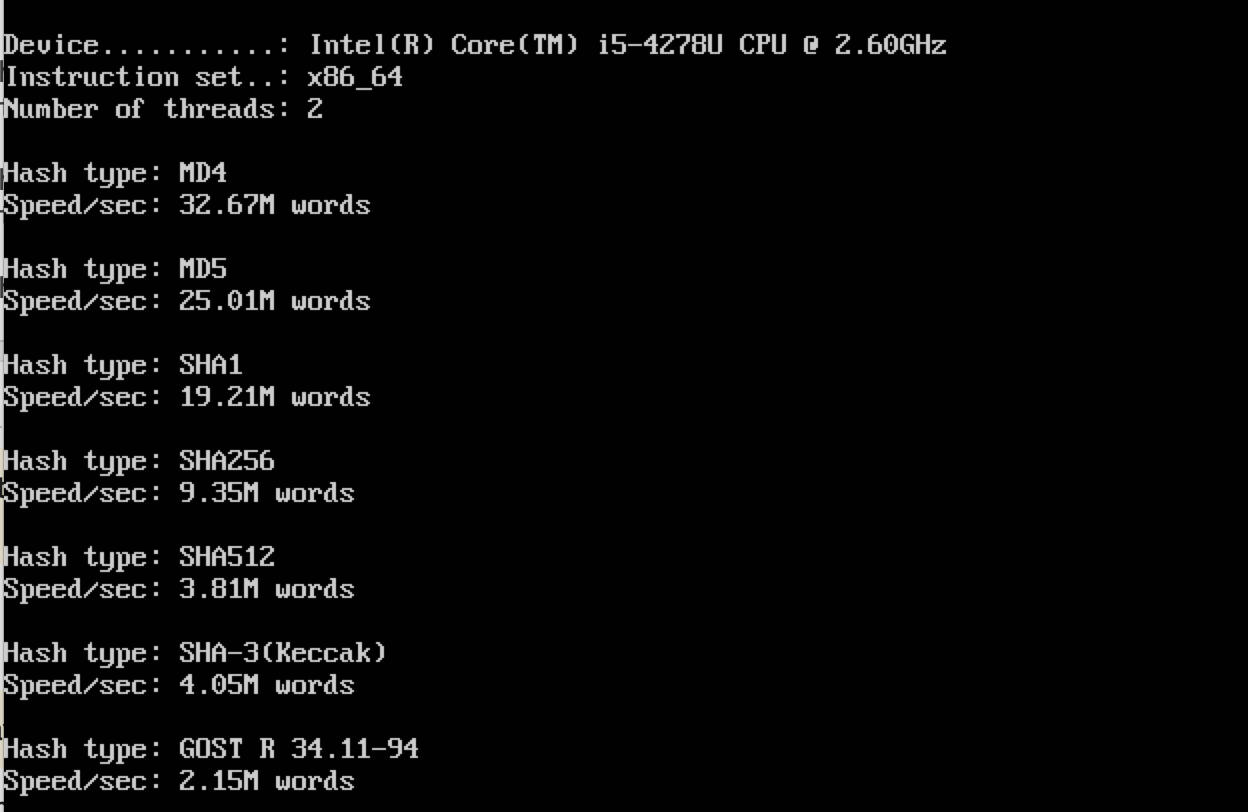
Hashcat benchmark with 2 cpus and 1024 MB RAM
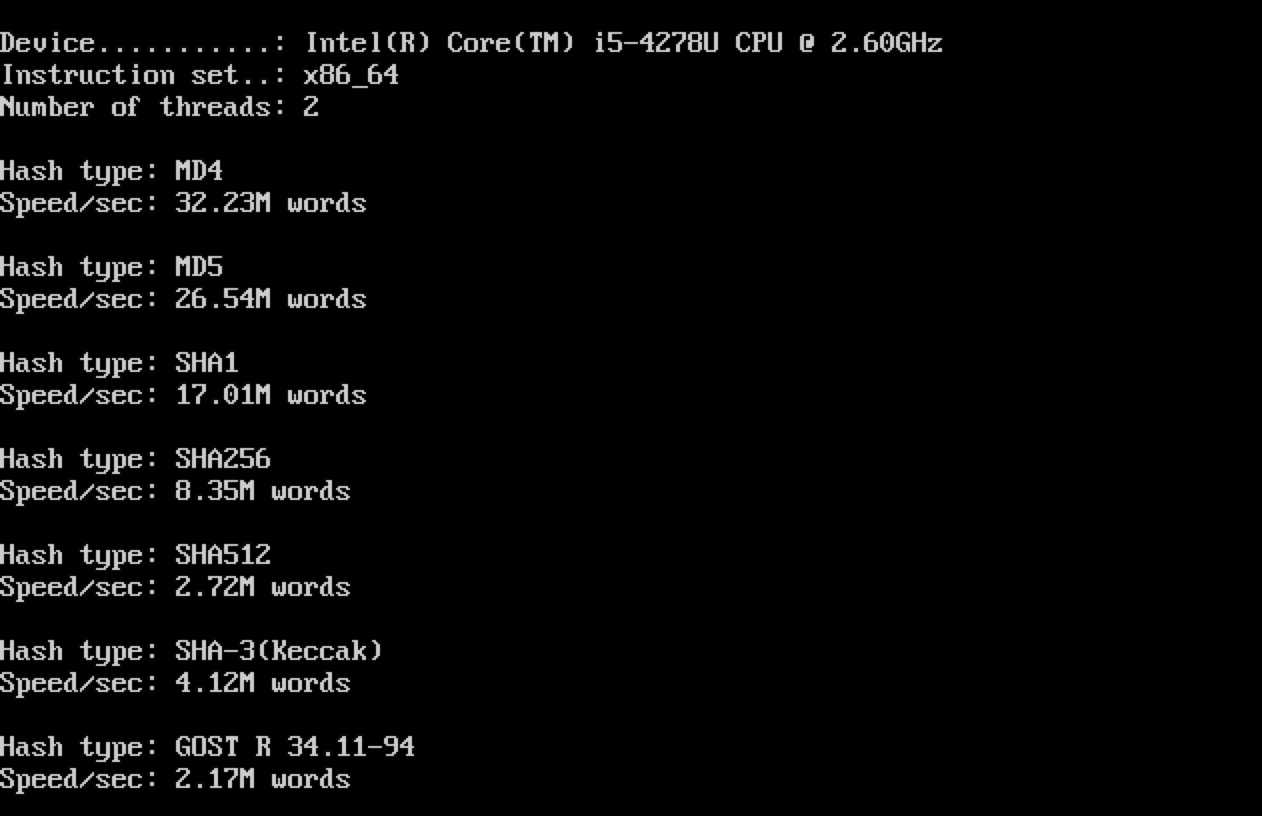
Hashcat benchmark with 4 cpus and 1024 MB RAM
